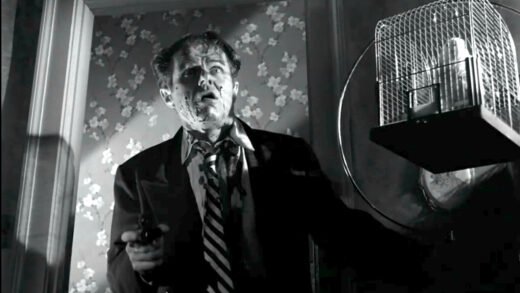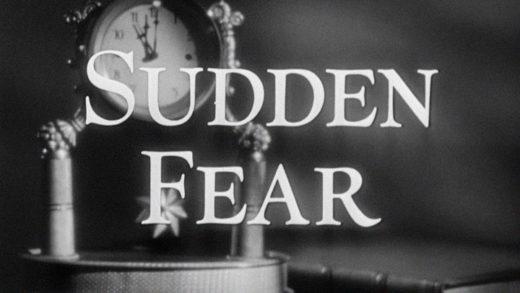A month beginning with Breaking Bad is undoubtedly nihilistic.


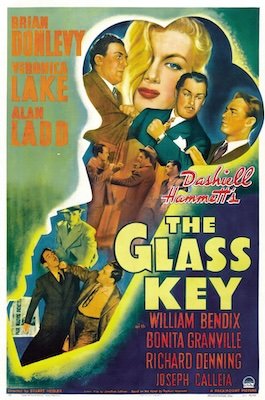
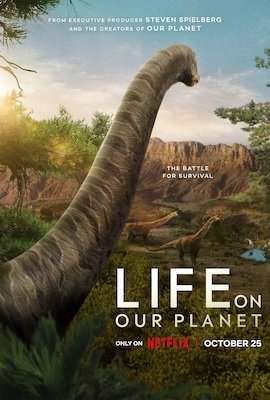

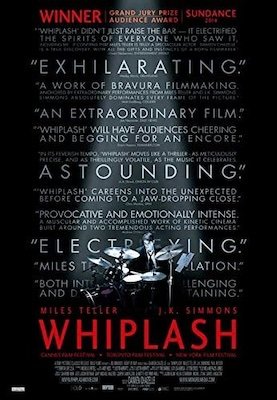

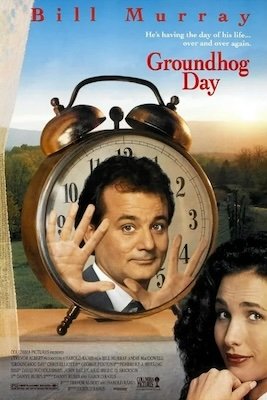
11/2
— Breaking Bad, 1.5
— F.W.J. Schelling, Introduction to the Ideas for a Philosophy of Nature, in German Idealist Philosophy, edited by Rüdiger Bubner.
11/3
— Breaking Bad, 1.6-7, 2.1-2

11/4
— The Glass Key (1942)
Based on a novel by Dashiell Hammett, directed by Stuart Heisler and starring Brian Donlevy, Veronica Lake and Alan Ladd.
Likely would never have watched this had it not been for Miller’s Crossing (1990), which I love. The latter owes something to this film as much as it owes the novel and another Hammett novel, Red Harvest.
Watching this, however, reminded me of how a remake is always a subtle critique of the preceding (in addition to being an opportunity to cash in once more on a previous success), even if it would be inaccurate to call Miller’s Crossing a remake of Heisler’s The Glass Key.
— Terry Pinkard, Hegel: A Biography, 10 pp
— Schelling, Introduction…, 5 pp.

11/6
— Breaking Bad, 2.3-4
— Schelling, 5 pp.
— Whiplash (2014), 45 minutes
Directed by Damien Chazelle, starring Miles Teller, J. K. Simmons, Paul Reiser and Melissa Benoist.
This month is a lesson in why we watch what we watch, and this film is a case in point. Talk about civil fascism. I’ve appreciated Simmons since he was a fixture on the original, undiluted Law and Order (1997-2010) as Dr. Emil Skoda. Here he is the destroyer and is excellent.
Teller is also very good in his role, the student that is being destroyed by a band leader from whom he desperately seeks validation. Yet, his needs underline his insecurity, his inability to find confidence within himself. Simmons’ character recognizes this and abuses it.
I only watched half of this film — turned off where Teller’s character belittles his cousins’ athletic abilities — because I was embarrassed by Teller’s character. I’d seen the film before.
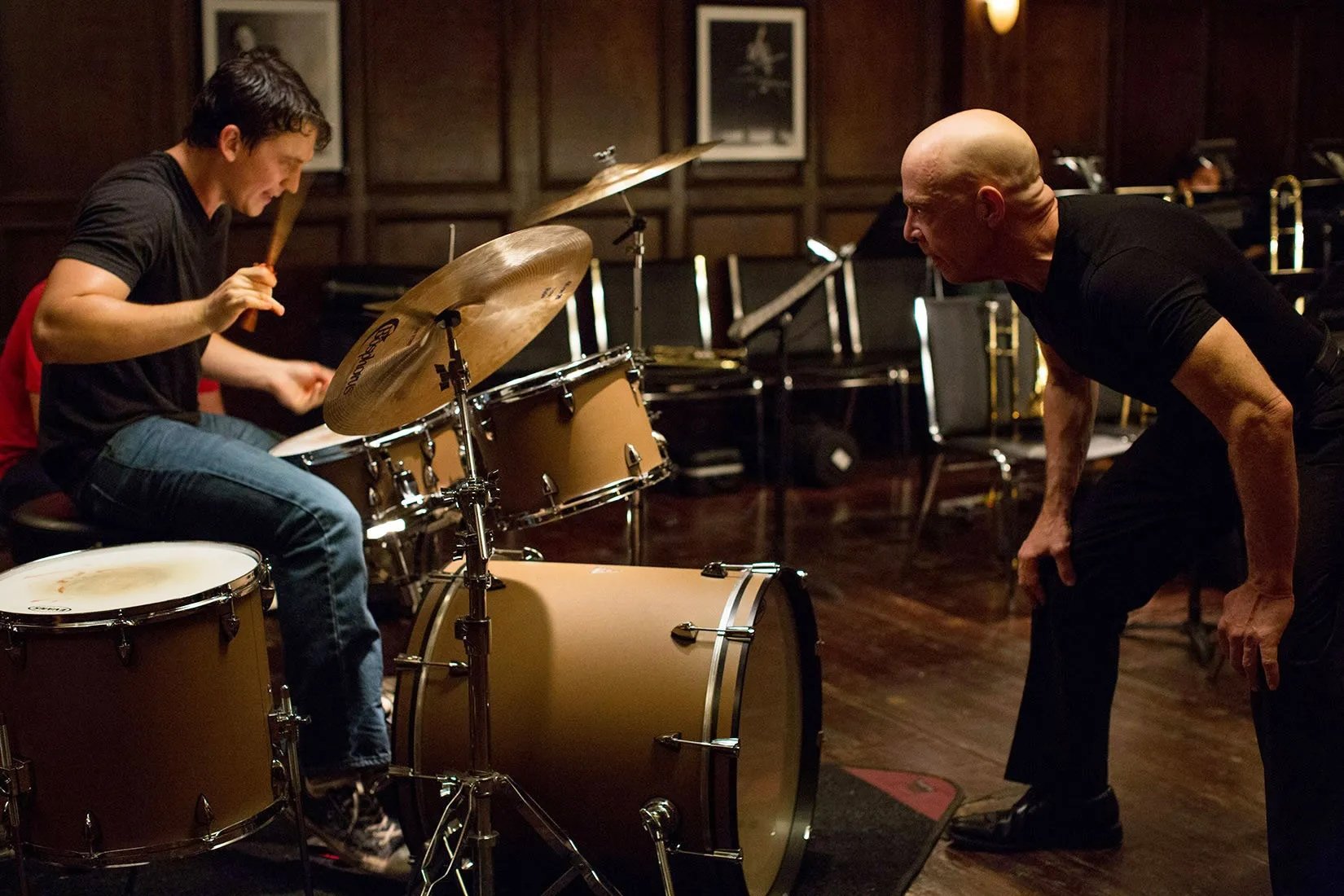
But why did I want to watch Whiplash?
What need did the viewing of this film satisfy?
Perhaps two things:
1) The effort of the film to demonstrate differences in tempo and pitch that surpass the normal human appreciation. Remember that practiced musicians recognizes differences in tempo and pitch, the recognition of which only results from years of practice. The latter is something that exceeds the powers of film to present, something that our culture, so profoundly impatient, appreciates less and less.
2) I enjoy watching Simmons’ character torture Teller’s. Perhaps in part because the latter is so pathetic, so ignorant of himself and others.
3) So what happened to the sheet music? That was excellent moment on Chazelle’s part.
11/7
— Schelling, Introduction …
11/8
— Max Hastings, Inferno, 30 pp.
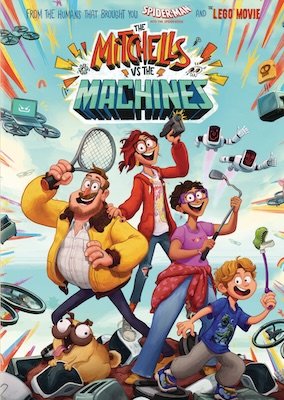
11/10
— The Mitchells vs. the Machines (2021)
The first time I watched this with Lucian, months earlier, I fell asleep or perhaps was already asleep when he started it. I do recall being sort of impressed and amused by the father trying to use a phone.
By contrast, this time I found so hilarious the French pug family dog as the means by which the tyrannical AI network was defeated. And really, this is clearly a species confounding nature’s tendency towards the best of possible species. Okay, that was sarcasm, belittling facile understandings of evolution with a little shout out to the best of all possible cosmopolitan “German” philosophers G.W. Leibniz.
— Finished Schelling, Introduction


11/11
— Groundhog Day (1993)
Directed by Harold Ramis, starring Bill Murray, Andie MacDowell, and Chris Elliott.
Murray is a weatherman (the quotidian kind) from Pittsburgh, with his producer (MacDowell) and cameraman (Elliott) in Punxsutawney for the annual groundhog day.
But the weatherman is caught in an eternal recurrence of the day in question — in other words, no matter what he does, he wakes up the next morning on groundhog day, once more.
But the eternal recurrence is an ethical test: what life is worth repetition?!
With Andie MacDowell as his cast member, the trajectory is fairly obvious. But the ending is the least interesting part of this movie.
— Paul Blart: Mall Cop (2009)
There are few films quite as bad as this one. This film is so dumb.
It did have the salutary effect of making me reflect on bad movies and why we watch bad movies, what is the price of watching a bad movie.
Primarily the fault of this film is the script, I suppose, since each plot moment is so ridiculous. Hypoglycemia causing one to fall asleep immediately? A mall security guard issuing citations? Terrorists taking over a mall? To which a defender of this film would respond: “Comedy is the absurd! Do you want realism? Is that a reasonable demand?”
So then why is this film so bad?
One especially egregious scene involves Blart (Kevin James) confronting two woman involved in a dispute over an item at the lingerie store Victoria’s Secret. Blart tries to sympathize with the less attractive woman, mentioning a series of physical faults, and her response is understandably rage: he’s being an asshole, thinking that he’s being a nice guy. What is supposed to be funny is the physical confrontation between Blart and this somewhat overweight woman.
In fact, this seen was supposed to be so funny that it was revisited later in the film when video of it was shown. But what is supposed to be funny are two overweight bodies in struggle.
11/12-13
— Breaking Bad, 2.6-13
Including the episode “Phoenix,” which I found particularly painful. That is the one where Walter watched Jane choke to death on her own vomit, while narcotized by heroin. I’ve always thought that was the real “breaking bad.” But I’m less sure now.
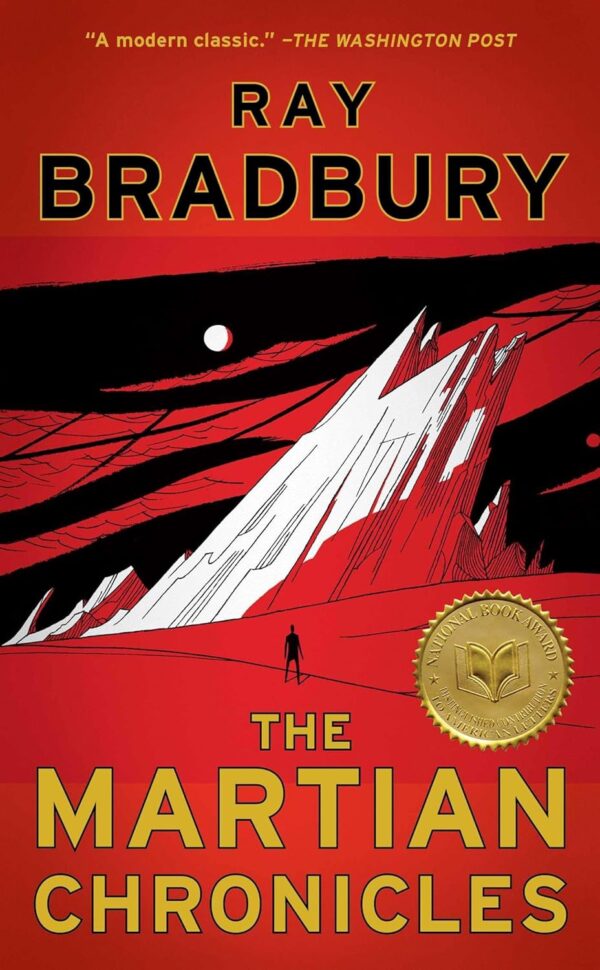
11/14
— Ray Bradbury, The Martian Chronicles, 30 pp.
The Martians murdered the first two Earthly expeditions to the red planet. Who’s surprised?
— Italo Svevo, Confessions of Zeno, “Introduction” by Édouard Roditi
Svevo’s first two works fell “dead-born from the press,” like Hume’s Treatise on Human Nature (I mean, if you can’t count on zealots, who can you count on!). Okay, maybe not that bad. Luckily, Svevo met James Joyce.

11/15
— Life on Our Planet (2023), “The First Frontier”
11/17
— Martian Chronicles, 15 pp.
— Planes (2013)

11/18
— Godzilla vs King Kong (2021)
Thirst for continuity creates two distinct narratives, making one ask halfway through, how are they related? And the, why do I care?
— J.G. Fichte, Foundations of the Transcendental Philosophy, 15 pp.
— Martian Chronicles, 15 pp.
11/20
— Martian Chronicles, 5 pp.
Is this really a novel?

11/21
— Life On Our Planet (2023), “Invaders of the Land”
Must we continue to use the language of striving for domination!
— Godzilla: King of the Monsters (2019)
This film was apparently a sequel to the 2014 Godzilla film, which I know that I’ve seen. At least part of it. Can one expect more than that? I recall Aaron Taylor-Johnson had a role.
And that it was remarkably tedious.
The sequel includes a number of other monsters including Rodan, Ghidorah, and Mothra. This film was directed by Michael Dougherty, starring Kyle Chandler, Vera Farmiga, Millie Bobby Brown, Bradley Whitford, Sally Hawkins, Charles Dance, Thomas Middleditch, Aisha Hinds, O’Shea Jackson Jr., David Strathairn, Ken Watanabe, and Zhang Ziyi.
Shouldn’t the addition of new monsters make this film more exciting? I’m surprised that I didn’t fall asleep.
The thrill of Godzilla is the promise of the sublime: destruction of a scale and magnitude exceeding our imaginations. But even with the vast powers of visual conjuring, this film was unable to effect that experience. Cloverfield (2008) did that 1000 times better than this movie.
11/22
— History of Philosophy Without Gaps, #424-5
Two episodes on Shakespeare — the former on Shakespeare and philosophy writ large, the latter a conversation with scholar Patrick Gray. Peter Adamson, the mind behind this entire series, is so remarkably clear in his expositions, so free of academic language. In fact, I would say to a fault, although I doubt anyone would fault him for it.
— The Great Race (1965), the last hour
No horror here and no Shakespeare. Just a very tragic Natalie Wood. And zany Jack Lemmon. Tony Curtis. Peter Falk.
— Martian Chronicles, 60 pp.
The earth burns, expanding three times its size and then contracts.

— Nick Cave and the Bad Seeds, Murder Ballads
A different sort of guilty pleasure, of the likes of orgiastic feast of The Kindly Ones or the Oresteia. Some of my favorite works of art.
— Friedrich Schiller, Essays, “On The Art of Tragedy”, 2-3 pp.
“We find the sight of misery and horror repugnant and yet with the same force we feel ourselves drawn to it.”
What Redeems the Album Murder Ballads?
The ordering of the songs on the album according to my liking for them
- “Stagger Lee”
- “Kindness of Strangers”
- “Crow Jane”
- “Curse of Millhaven”
- “Henry Lee”
- “Where The Wild Roses Grow”
Why “Stagger Lee”?
Everything should condemn it:
- in hock: “a 28 Ford, had payments on that”
- cast out by his wife: “don’t you never ever come back no more”
- desires recognition from the bartender: “don’t you know that I’m the bad motherfucker called Stagger Lee, Mr. Stagger Lee!”
- who, when Stagger Lee doesn’t receive it, he then kills: “fills him full of lead”
- glee taken in the manner of the bartender’s death: “Count the holes in the motherfucker’s head!”
- entertains a prostitute but for the sake of sodomizing her boyfriend: “I’ll crawl over 100 fine pussies to get to one fat boy’s asshole”
- the sound of gunshots killing the boyfriend performing fellatio
- the crescendo, with repeated, continuing screams of horrors, thunderous guitar feedback and bass and organ set loose — all producing an image of hell
Was gefällt mir:*
#8 produces a veritable bodily sensation that had been building up throughout the song — some kind of catharsis?
#6 as the inversion of the expected desires (heteronormativity!), the desire to humiliate the prostitute through humiliating her lover (but doesn’t that sound like misogyny? Or is it just to this Bathesheba who raises our hackles because she profits from wayward desire?)
#3 the forthrightness and pride with which he announces himself, demanding observation — exulting in a power that exceeds lawful regulation, moral demands
#9 guitar riff, bass, and piano/organ peak, beginning and repeated until the crescendo
#5 is adolescent, I admit, but me like-y?
* “What pleases me”

11/23
— Schiller, “On The Art of Tragedy”
You loved reading Kant in the Critique of Judgment, right? Me too.
The Analytics of the Beautiful and of the Sublime, describing the intercourse of the faculties of pleasure, of reason, of desire. A party in which the imagination pushes the pleasures to a maximum (Deleuze’s account).
But Kant elides describing pain and suffering. Cue Schiller.
The beginning of Schiller’s essay appropriates that theoretical framework and begins by describing the suffering and emotional pain which is the sensuous effect of tragedy. Where Kant left our thirst un-slaked, Schiller offers a satisfying quaff.

11/24
— Cyberbunker: The Criminal Underworld (2023)
I really should have known better. Why did I keep watching?
— Napoleon (2023)
Directed by Ridley Scott, starring Joaquin Phoenix and Vanessa Kirby.
157 minutes of mediocrity. Bad, uninspired script. Probably 157 days of not going to a movie theater, ended by this piece of crap. What ignominy.
— Martian Chronicles, 10 pp.
— Finished “On the Art of Tragedy”
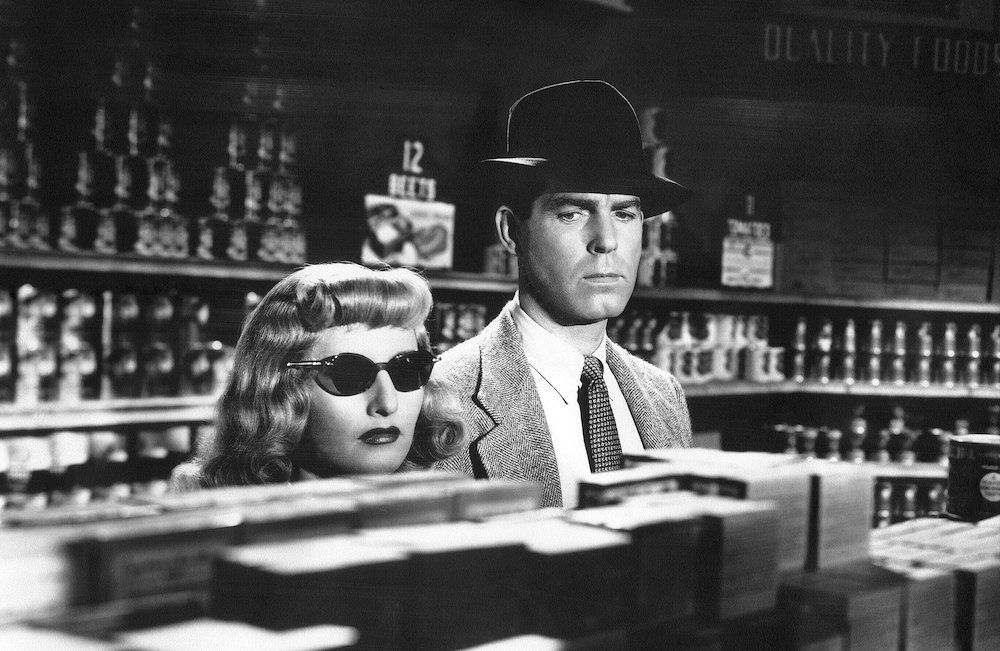
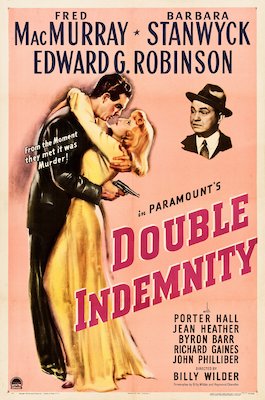
11/25
— Double Indemnity (1944), last hour
Directed by Billy Wilder (the classic and unforgettable Sunset Boulevard [1950] and the even better Ace In The Hole [1951] among others), co-written by Wilder and Raymond Chandler (admittedly no Dashiell Hammett, but still wrote The Big Sleep and The Long Goodbye).
Stars Fred MacMurray, Barbara Stanwyck, and Edward G. Robinson. Fred MacMurray became known for his role as the father on the saccharine television comedy My Three Sons (1960-72) as well as some Disney films of the same ilk. So it is weird to find him in this role, an accomplice to a murder.
Stanwyck is a sort of titanic figure in film history. When she made this film (at the age of 37), she’d been making movies for 14 years already, and had been in show business since the age of 16. And she’d made some unforgettable films (over which posterity had the final laugh, unfortunately) — like Babyface (1933). This film made her into the femme fatale.
The more noirs I’ve seen, the less I think of this one. This isn’t a reflection on the performances, which are strong. The language is a bit tired: MacMurray’s character calling Stanwyck’s “baby” left and right. But Robinson’s character’s funny, never-erring stomach is very good.
— Finished Martian Chronicles
— C.S. Lewis, The Screwtape Letters, 50 pp.
11/25-30
— The Screwtape Letters, 20 pp.
Making up for missing one day of work before T-day meant not being able to enjoy any moment between Monday and the end of the month. No biking, no TV, no movies. Instead, just a few minutes of reading before bed. Which meant reading poorly a book that encourages quick, ignorant reading. But it does not deserve that reading. It’s quite worthy of close reading, and hard to read closely.


